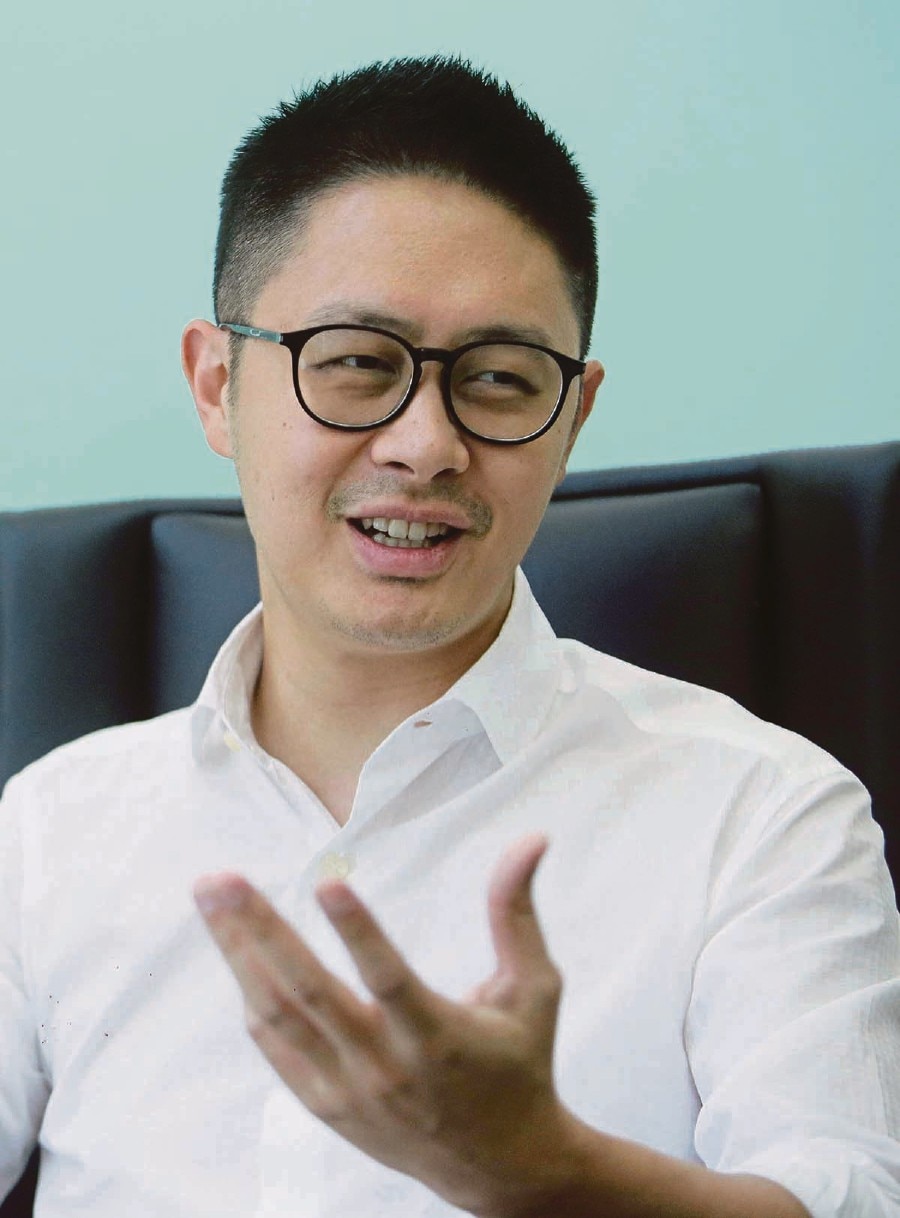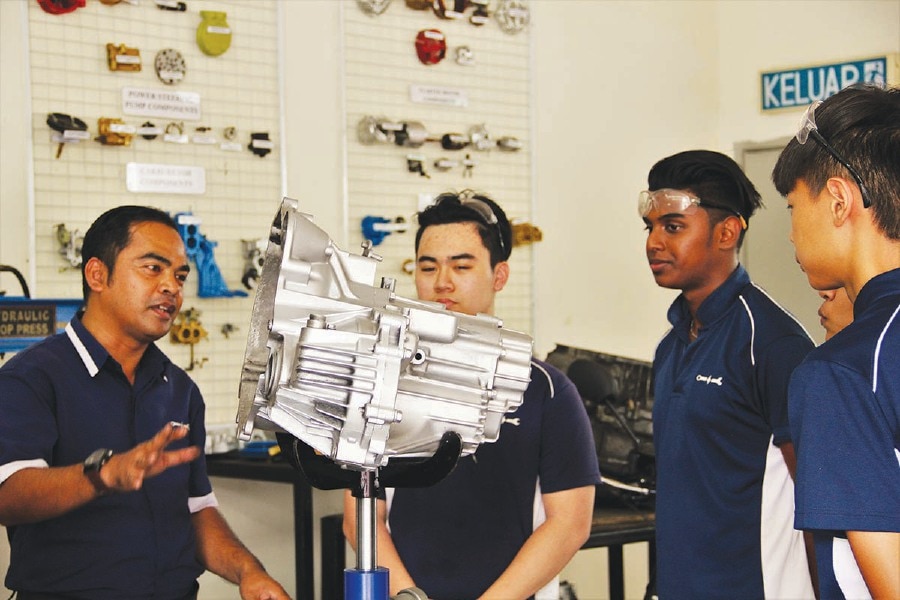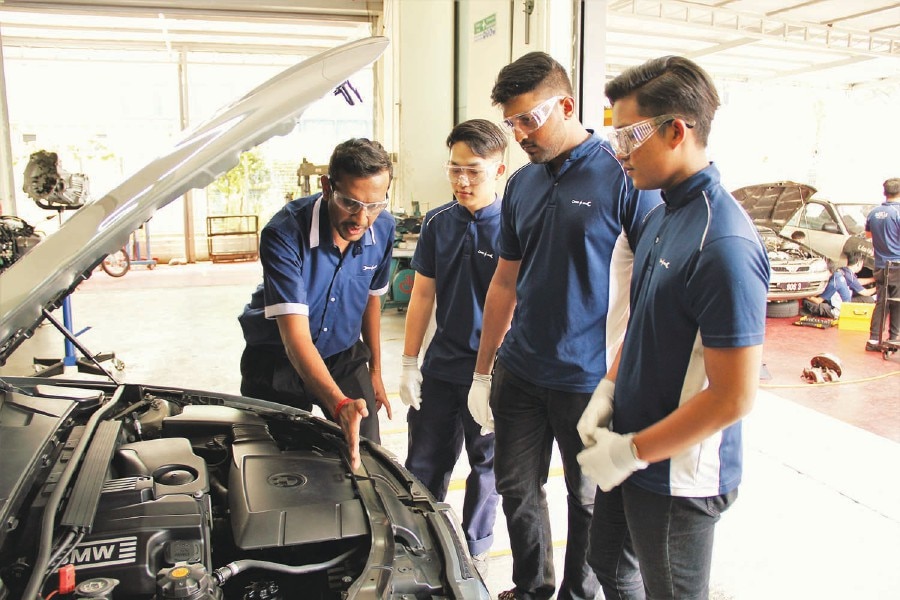IN coping with today’s competitive job market, students have to plan their future and career aspirations carefully.
Technical and Vocational Education and Training (TVET) programme is an option worth noting, although often seen as inferior to programmes offered by other tertiary education institutions.
The perception that TVET is only for students who do not excel in their studies has completely changed today. TVET is relevant as it involves education and hands-on job training, which provide knowledge and skills for employment.
People are starting to realise its importance and are opting for vocational courses to gain skills in different fields. TVET prepares students with specific skills for a specific job, thus, making employment easier as they are trained and equipped with the right skills. This gives TVET graduates an advantage in the job market compared with fresh college graduates, who may not have the relevant skills for the working industry.
Realising the deficit in the supply of skilled labour in the local automotive industry, CKL group launched the School of Skills (SoS), that provides vocational training for youths to fulfil the automotive industry’s need for skilled labour.

Executive director of CKL Group Companies, Clement Lim.
Photograph by New Straits Times
With the changes arising from economic and social development, this country requires a worker to be well trained in technical and professional skills. This is what SoS aspires to do — to groom its students with a real-world experience for their future employment.
SoS wants to further develop the vocational training offerings in Malaysia to build human capital, which has been proven to increase youth employment and benefit the industrial sector.
CKL Group started off with Lim Tayar, a homegrown automotive retail service company in 1985.
Clement Lim, executive director of CKL Group Companies said: “The main reason for the establishment of SoS is to act as a self-mitigation tool for this company. We want to produce more local experts in the automotive field as it is against the rule to hire foreign workers.”
“In SoS, we offer courses and programmes that are designed to give students the skills they need to become skilled and professional workers in automotive industry.”
“This industry is a big market. We can guarantee a job placement for each of our student so they can put their obtained skills to work after finishing the programme,” he said.
SoS Training Department head Daneshwaran Krishnasamy said picking up a skill is never a waste.
“The number of cars is increasing every day. I believe we are lacking of professional manpower in this industry. This programme will boost the skills and workforce in automotive field as Malaysia is in demand of trained experts.
“TVET will result in productive employment and act as an important factor in the country’s economic development,” he added.
“The biggest advantage of SoS is that we have our own workshop, where students spend most of their training hours. After their advanced diploma, the students will go through a three-month internship at any of 20 Lim Tayar outlets or other automotive workshops in Malaysia.
“However, students do not necessarily have to work with Lim Tayar once they graduate,” he said.
Located in Setia Alam, the training centre offers theoretical and practical training and a work-integrated learning programme called “Train and Place”, which involves four months of classroom-based learning followed by eight months of industry exposure.
Among the courses in SoS are Sijil Kemahiran Malaysia (SKM) in Automotive after Sales Servicing, Diploma in Automotive Technology and Advanced Diploma in Automotive
Diagnostic Technology.

Students attending a briefing with School of Skills trainer.
Photograph by New Straits Times
“Additionally, students learn English communication skills, personal grooming and self-discipline as a part of their assessment. These are the skills that they need once the step into the industry,” said Lim.
The school will introduce a new non-automotive programme — Electronic, Plumbing and Air-conditioning (EPAC) course starting next month.
Lim said promoting SoS was a challenge as TVET programme was not the mainstream path for SPM school-leavers as compared with other education institutions.
He believed that TVET ensured individuals were equipped with relevant skills and assured to a strong degree of employment.
“There are many misconceptions about those who choose TVET as they are known as the blue-collared workers. However, their work prospects are high in demand and they can do the things that we can’t,” said Lim.
“In Malaysia especially, there is no awareness on boosting the skill workforce although our country needs more of them. Some of them are earning a higher income than degree-holders,” he said.
SoS is dedicated to providing the students
with the best education, training and a positive learning experience that will equip them in their path to pursue a successful career. It provides excellence in teaching and learning, promotes students’ success and supports economic development.
Source: https://www.nst.com.my/education/2018/09/408470/tvet-relevant-choice

